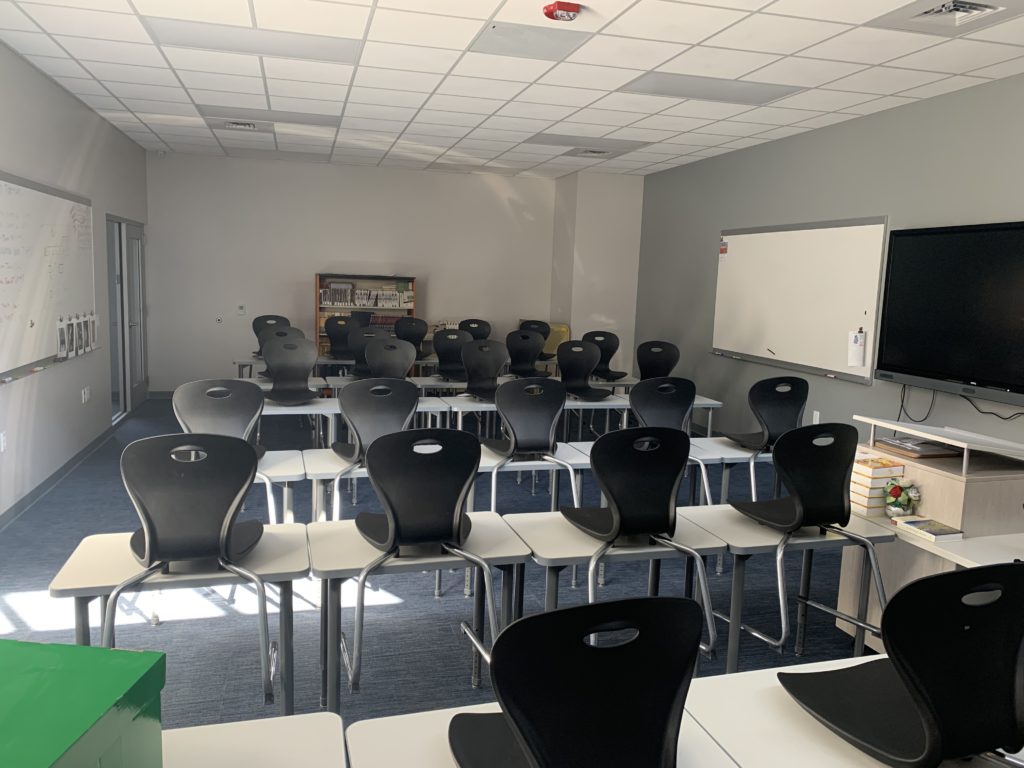Remote Learning during a Pandemic
- Share
- Tweet
- Pin
- Share

To try to ensure that students’ education isn’t being put on the back burner while the national COVID-19 emergency continues, schools such as Gibraltar have turned to remote learning.
Gibraltar School has used e-learning this year to combat lost instruction time during snow days, an approach that has caused backlash from some parents and community members. After closing the school, Gibraltar’s administrators acknowledged that the term “e-learning” did not account for all of the types of learning that would be taking place as the pandemic unfolds.
“We need to continue to offer learning for all students; hence the name [was] changed to ‘remote learning,’” said school board member Lauren Bremer. “It may not be online for all students.”
As summarized by school board member Angela Sherman, remote learning more clearly defines staff and student expectations, and it includes students without access to the internet, students with special needs, English learners, and gifted and talented students.
On Friday of last week, Gibraltar distributed laptops to elementary students so they’d be able to participate in remote learning as well.
At a school board meeting on Monday, the board and administrators decided that Gibraltar would remain closed – and remote learning would continue – at least through May 3.

In Door County, where poor internet connections affect hundreds of residents, online learning will likely continue to have its pitfalls. In a survey conducted by Gibraltar’s school newspaper, the Viking Voice, more than half of high school students said that poor internet connections have impaired their ability to accomplish schoolwork.
During last Friday’s school board meeting, Sherman said that during Gibraltar’s previous e-learning sessions, approximately 20 percent of students were either unable to log on or chose not to.
Superintendent Tina Van Meer assured those gathered at Friday’s meeting that e-learning’s lack of reliability did not play a role in choosing to close the school before Gov. Evers’ plan to close all schools beginning March 18.
According to Gibraltar’s technology director, Andrew Moore, the school has acquired 10 new WiFi hotspots to give to students who have unreliable connections to combat some of these internet-connectivity issues.
“I worked with teachers last week to identify students who had reported having no internet access at home, and we used other factors to find out who would receive precedence,” Moore said. “As of now, nine of the 10 hotspots have been put out into the community.”
Teachers and students have said that their technological impairments with e-learning have caused problems in the past and that the amount of work – for teachers to prepare and students to complete – during an e-learning day is significantly more than during a traditional school day.
“Overall, I spent about 10 hours setting up [e-learning] and providing feedback,” said Gibraltar chemistry and physics teacher Craig Carriere, referring to the most recent e-learning day.
“Our workload is greater on e-learning days because teachers expect us to learn and finish an assignment that same day,” said Gibraltar senior Nina Sitte. “Whereas on a school day, we might learn one day and hand the assignment in the next.”
According to many members of the Gibraltar staff and community, the quality of e-learning, in a limited sample, is far less than the quality of instruction at the school regularly.
“There is an efficiency when everyone is together in a classroom that is lost when shifting to online,” Carriere said. “I believe in individual feedback and believe that students deserve and need that feedback, regardless of how or where they are learning.”
“It will continue to be a work in progress that we are always evaluating,” Sherman said, “but it is our best option for keeping our students learning during this extended closure.”
“I have a great deal of faith in our faculty to provide high-quality instruction to our students, despite the circumstances,” Bremer said.
Parents such as Becky Rericha have urged Van Meer and the school board to be flexible with remote learning and to avoid assigning students busywork.
“Families need flexibility, as parents won’t necessarily be home to assist their younger children,” said Rericha. “Due dates should be extended to allow for flexibility.”
“I was in communication with some of our parents who had expressed some frustrations and challenges that they had over the last e-learning day that we had and just in general,” Van Meer said. “So we really took a look at what our parents were saying, what our surveys were saying, and it really helped with setting up some of our expectations. The biggest thing is we want consistency across the district, and we want to be clear about the guidelines for what we expect from our teachers and for what we expect from our students, and this is our first attempt at doing that.”
Van Meer and the board also addressed concerns from parents about how they will be unable to care for their students while they are at work during the extended absences.
“I recognize that this extended closure is going to be hard on working families whose businesses aren’t able to close, [who cannot] work from home or who need their full income,” Sherman said.
Here is a link to a letter sent by Superintendent Tina Van Meer to parents and community members.

